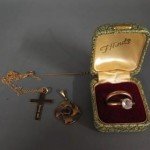Death is always unexpected and often feels like a sudden shock, despite it being the only certain event that will occur in all of our lives. There is a number of steps to take after you have found out that someone has died, and I will be outlining how to obtain a probate grant below in a bid to make this difficult period just a little easier.
If you are concerned with the property of a person who has passed away, you are required to attain what is referred to as a ‘grant of probate’, before you are able to allocate their assets as detailed in their will. The first step is to verify your legitimacy to function as the deceased’s executor. For this to take place you will need to send the original will to the Probate Office. This could possibly entail an appointment to the solicitor who arranged it, if they have been retaining it for the deceased. It is important to note that unless the solicitor is explicitly titled as co-executor, you are not compelled to use their probate facilities. Alternatively, you may wish to look around for a DIY probate or your own individual probate solicitor.
Before requesting a grant of probate, you need to ascertain the deceased persons various assets and liabilities. The degree of complexity of this process varies considerably – ranging from a tally of building society and bank accounts, to having to consider other investments and properties less overtly stated. Each institution should be sent an official print of the death certificate and asked to present a final statement. Banks should usually pay out funeral expenditures immediately, but the majority of assets continue to be frozen until you have legally been permitted probate.
After determining the scope and configuration of the estate, you should be at the point of being able to complete a probate application form. You shall need to apply to the Personal Application Department of the Probate Registry for this to occur. This form is named a PA1 form in England and in Scotland you can apply for confirmation from the Sheriff Court.
In addition to the cost of the estate at the time of death, Her Majestys Revenue and Customs requires specifics of any cash gifts made by the deceased person in the seven years before they passed away. These can subsequently increase the property worth for inheritance tax, so should thus be considered carefully. After the forms are completed you then can send them along with the death certificate and the original will to the Probate Registry. You will also be asked to swear an executors oath, which can be performed at your closest Probate Registry or a local solicitors office.











